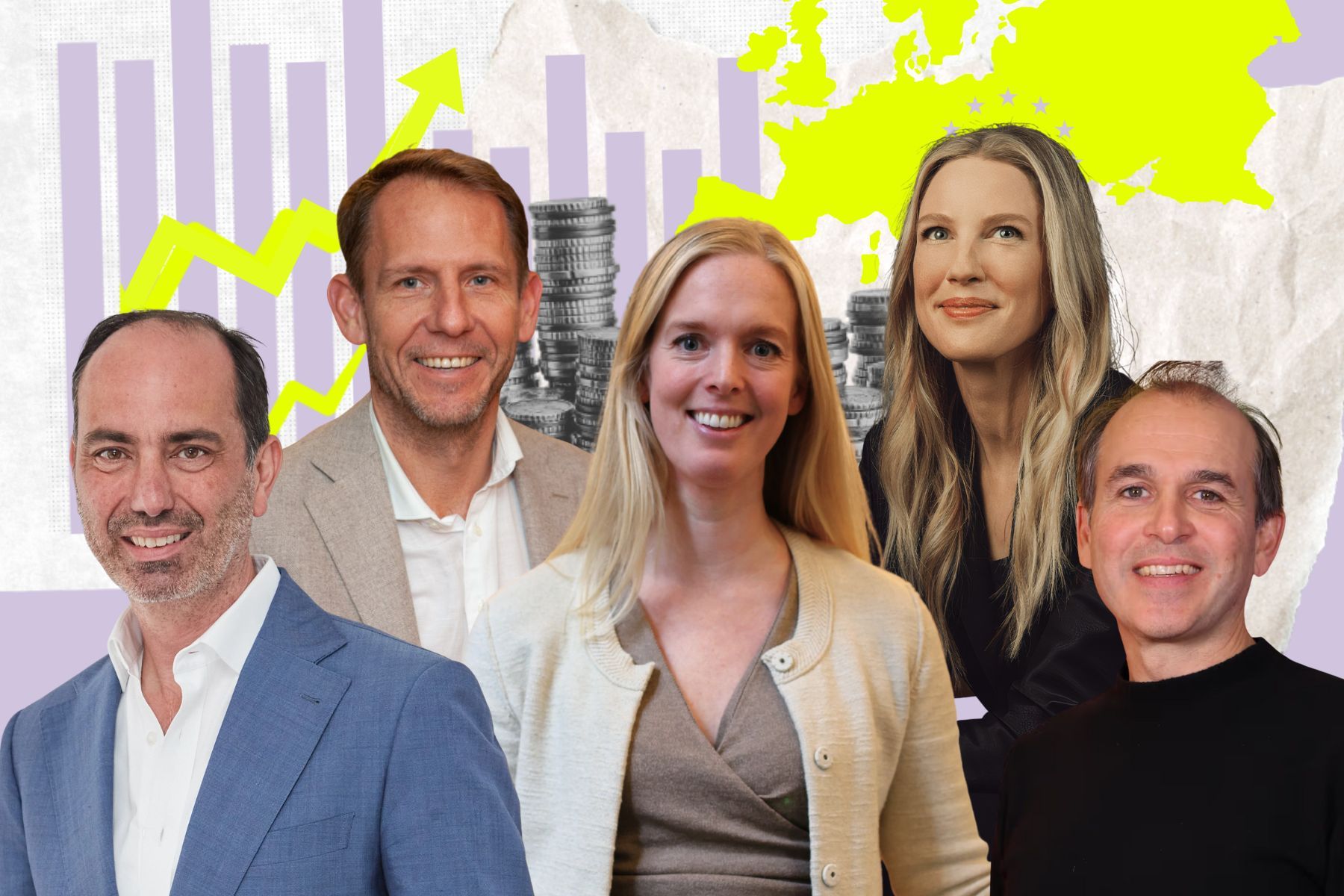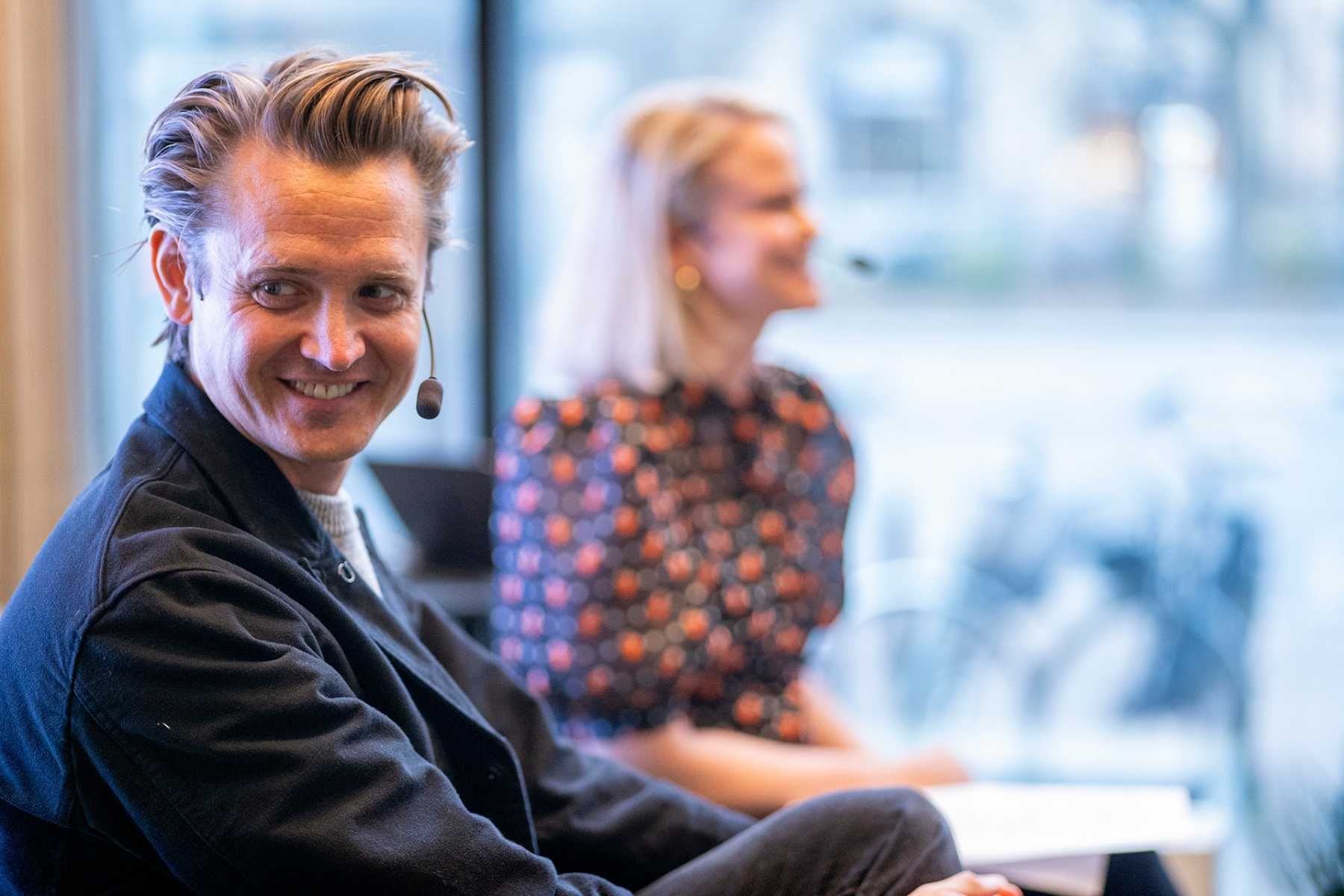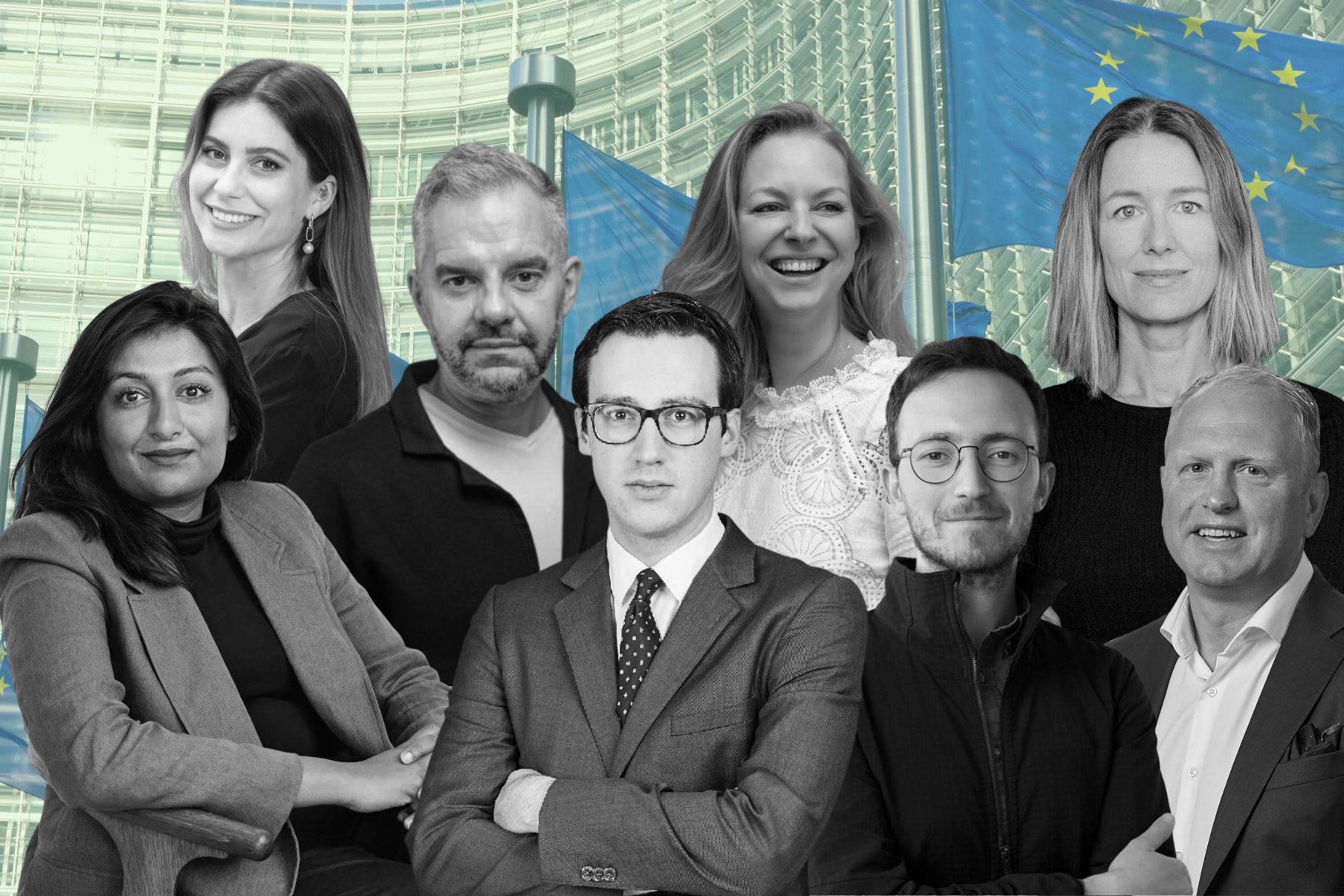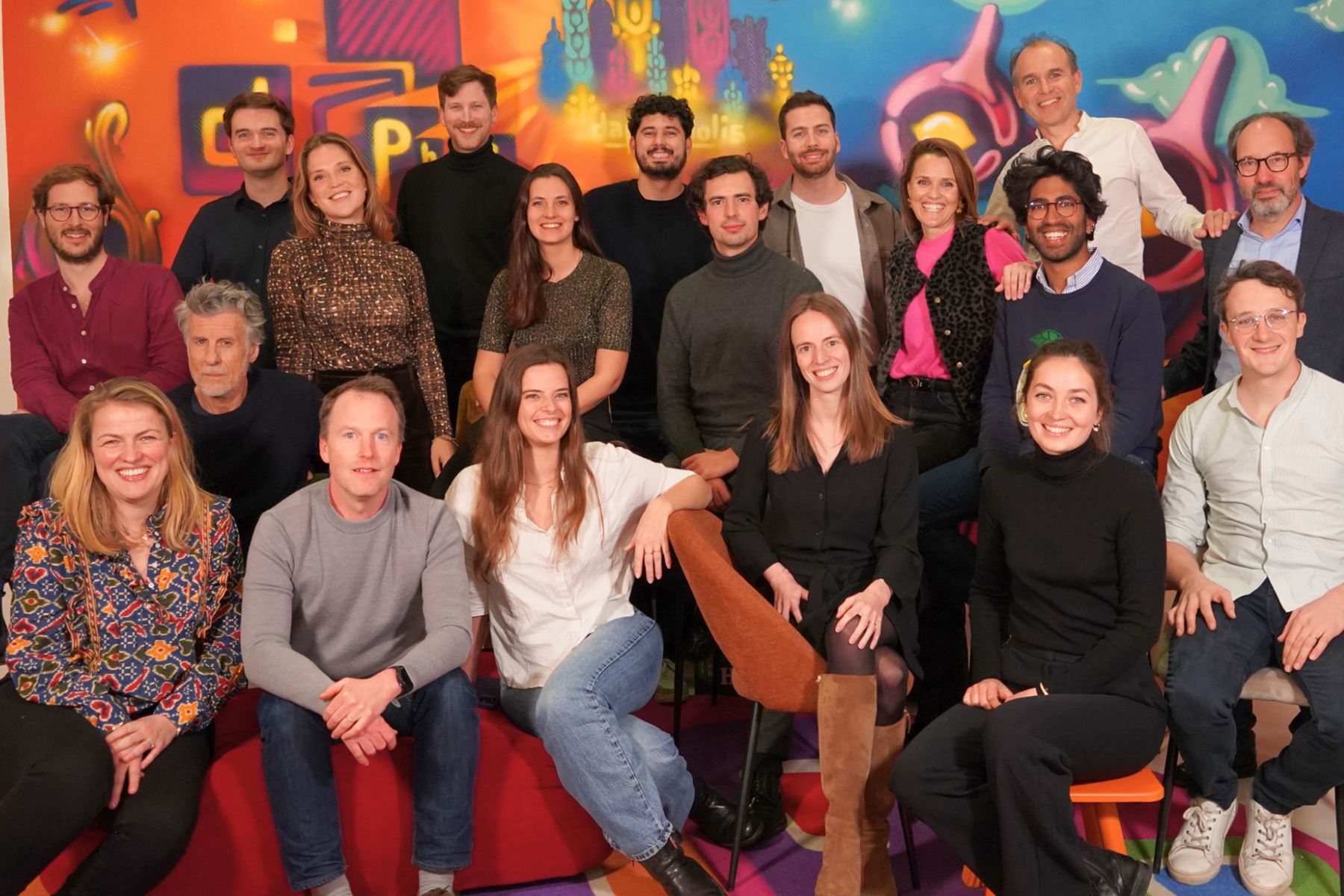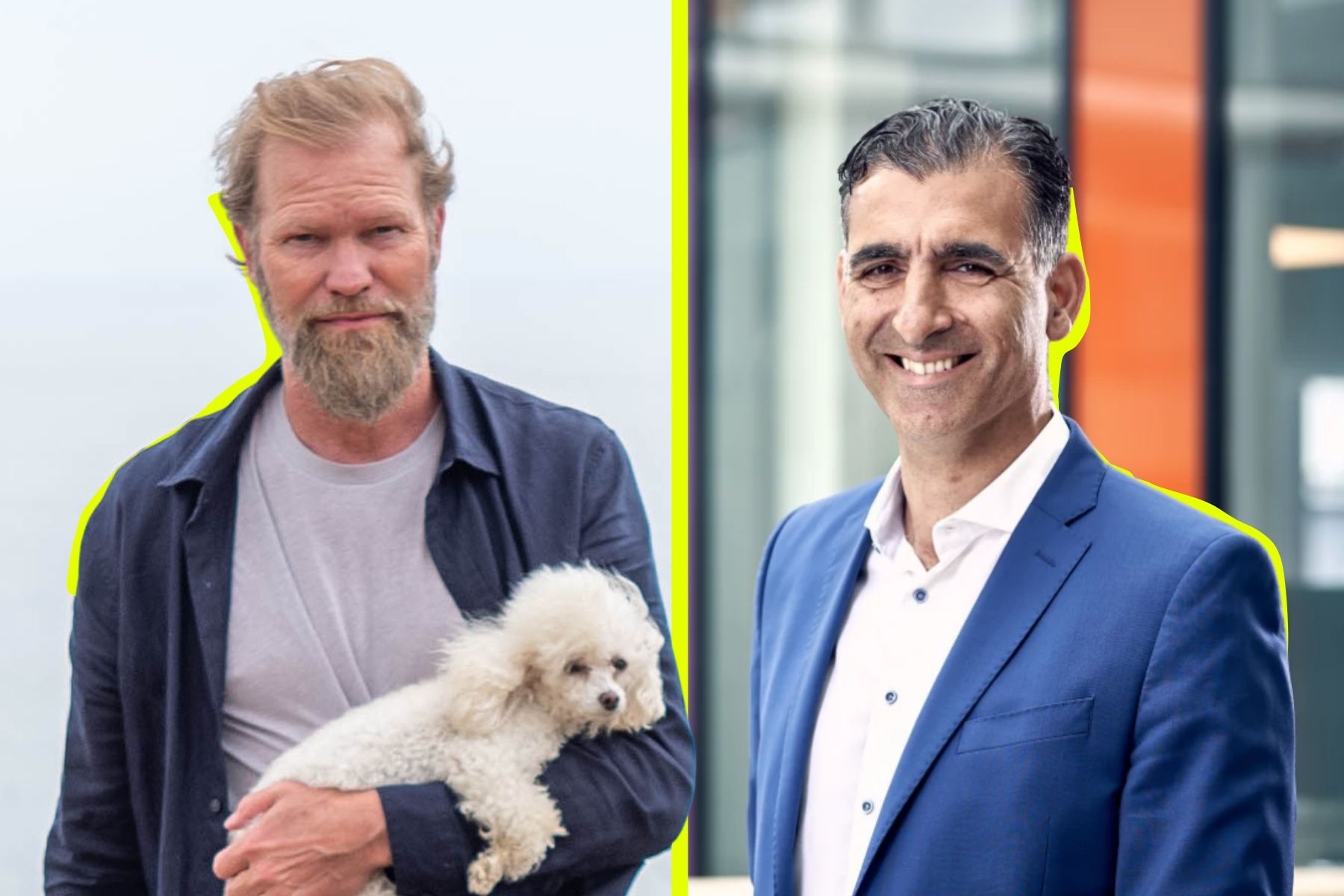'It is unconventional': Why Unicef sets out to be a bridge between investors and impact founders
Civil society should not be separated from the startup ecosystem. Unicef Office of Innovation wants to bridge the gap between young entrepreneurs and impact investors. Impact Loop sat down with Unicef Global Impact Director Thomas Davin to discuss the future of aid.


It feels almost like a royal setting. Impact Loop meets Thomas Davin in the beautiful Sculpture Courtyard at Nationalmuseum in Stockholm, where a selected group of policymakers and aid experts gathered last week to chat with four startups with operations primarily in the global south.
Unicef established an Office of Innovation in Stockholm in 2022, and has since launched several different initiatives to provide impact entrepreneurs with vital tools for growth and scale. Innovation30 is one, inviting young climate entrepreneurs to receive both funding and strategic support from a network of organisations.
"We realized that we didn’t have what it took to help children’s progress as fast as we needed to reach the SDG:s," Thomas Davin tells Impact Loop.
Back then he was based at Unicef’s headquarters in New York.
"If we want to meet the goals we need to accelerate by 400 percent the progress that we have seen over the last 15 years. So I went to my executive director and said ‘we don’t have the right resources and partners – maybe even not the right ideas to do this’."
The move to Sweden
To Davin's surprise, he immediately got a green light to explore potential solutions. A small team then reached out to 45 of UN’s most important member states with a letter, basically saying: "We need your help in the work for children − in health, education, water and climate solutions. We can’t do this alone."
The government of Sweden responded promptly: "come here!". So Thomas Davin and his team moved to Stockholm and set up the Unicef Office of Innovation, today with a staff of 50 people from 32 nationalities.
"We could see clearly that there are fantastic entrepreneurs out there, but that they don’t get the support that they need. We need a process for bridging the gap."
Innovation and frustration
The program Innovation30 is one of the solutions. Thomas Davin says it was born from frustration.
"We are tired of hearing that the young people are going to be the victims of climate change. We are present in 160 countries, and we meet so many young people with brilliant ideas. Can we talk about them shaping the future of climate instead of only being the victims?"
As a first step, connections were established with 15 climate accelerators across the globe. They were asked to present the best ideas for climate mitigation and adaptation, specifically solutions that have an impact on children and their communities. And ideally from entrepreneurs under the age of 30.
"We went through 500 companies. Together with our partners we chose 24 entrepreneurs to work with, that had the best solution in their area of the world."
Thomas Davin points out that Innovation30 is not just about interesting ideas. The companies should be up and running, delivering a product to the market already. The name of the program represents both young entrepreneurs under 30, and the SDG milestone of 2030.
"Being an entrepreneur is hard everywhere, but being an entrepreneur in the Global South is the next level of difficulty. We were blown away by the people we met, by their resilience, their ingenuity, and the fact that they never lost hope. We couldn’t understand why they couldn’t get funding."
The future of aid
His analysis after a few years is that climate financing primarily is going to big tickets. Impact investors sometimes target smaller companies, but only in OECD countries.
"We have defined the problem: we want the shapers of tomorrow and solutions for children. We know they exist. How can we help finance them? We want to collaborate and be a bridge between investors and entrepreneurs."
Would you say that this is a new approach in the aid sector?
"It is unconventional. We believe it’s one of the future pathways where aid should be going. You make aid more sustainable by making it more impactful."
Thomas Davin points out that there is 40 trillion USD invested yearly in impact.
"If we can be a bridge for one percent of that money going into the global south, that’s billions for sustainable business building that’s going to change the world for the children that we serve. Our role is not to touch that money. Our job is to make it a win for investors, lenders and startups."
Partnerships are key to making it happen. Swedish aid agency Sida is for example instrumental in providing guarantees to derisk climate projects in the Global South.
"We are onto something that to some extent is the future of aid. But we also realize that we are new to this game, so we want to gather as many stakeholders as we can. Young entrepreneurs tend to grow really well. But there is no pipeline. So maybe we can help create that pipeline?"
Get full access to Europe's new platform for impact news
- Quality journalism, interviews, investor profiles and deep-dives
- Daily newsletter with top stories, latest funding rounds and roundup to keep you in the loop
Keep reading – get in the loop!
- Håll dig i loopen med vårt dagliga nyhetsbrev (gratis!)
- Full tillgång till daglig kvalitetsjournalistik med allt du behöver veta inom impact
- Affärsnätverk för entreprenörer och investerare med månatliga meetups
Fortsätt läsa – kom in i loopen!
- Håll dig i loopen med vårt dagliga nyhetsbrev (gratis)!
- Full tillgång till daglig kvalitetsjournalistik med allt du behöver veta inom impact
- Affärsnätverk för entreprenörer och investerare med månatliga meetups




